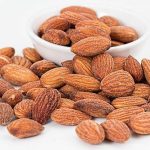It could have been a famous person revealing that they follow a vegan diet. Your cousin may have said that her oat milk latte tastes just like a real latte. It could have been the billboard you drove past advertising a new plant-based burger at a nearby fast-food joint. Many people are interested in plant-based eating.
Although the number of people in America who identify as vegan or vegetarian is not increasing, the number of people who consider themselves flexitarian is rising. They eat mostly plants, but sometimes eat meat and dairy. Of all U.S. adults, more than one-third are flexitarians, and of adults ages 24 to 39, more than half are flexitarians.
There are many reasons to eat more plant-based foods, such as improving your health, benefiting the environment, or helping animal welfare. There are more convenient plant-based food and drink options available than ever before.
You can now find plant-based cheeses that better imitate cheddar cheese in terms of meltability, bubbliness, and stretchiness. You can enjoy creamy coffees, delicious yogurt, and amazing ice cream without any dairy products.
You can make a tuna sandwich without using fish from the sea, and scramble up some eggs. And how about plant-based burgers that look and taste just like the real thing?
More than 30 brands are available, including the Beyond, Impossible, and Awesome Burgers.
Almost 50% of people have eaten a plant alternative to animal meat.
Types of Plant-Based Meat Alternatives
Plant-based meat alternatives are becoming increasingly popular. Here are some of the more popular types.
Seitan
A plant-based meat substitute made from vital wheat gluten, seitan has a chewy, meaty texture and is high in protein. It has a rich flavor that pairs well with pasta, rice, and other hearty dishes.
Nutritionally, seitan is a high protein plant-based meat alternative. It usually has small amounts of iron, calcium, and potassium. You can find seitan in many grocery stores in the form of cubes, strips, or thin deli slices.
You can make seitan at home using vital wheat gluten, vegetable broth, and soy sauce, liquid aminos, or garlic as flavoring agents. To make this dish, simply mix the ingredients in a bowl, create a dough, and then boil sliced pieces of the dough.
Now, seitan isn’t good for people who have celiac disease or are sensitive to gluten in general.
Beyond Meat Products
Beyond Meat is a popular brand of meatless products made from plants. This brand initially gained recognition for its vegan burger called the Beyond Burger, but now it also makes plant-based ground meat, sausage, meatballs, and chicken.
The primary ingredient in a Beyond Burger is not meat, but pea protein. The refined coconut oil, rice protein, cocoa butter, and dried yeast give the chocolate a unique flavor.
The Beyond Burger is a burger that is free from soy and gluten and is naturally colored using beet juice. This means that one patty provides all the vitamin B12 you need for the day, as well as a significant amount of zinc and iron.
Impossible Burgers
Impossible Burgers are made from plants, but taste like meat. Impossible Foods makes the Impossible Burger and other products using plant ingredients. These include burgers, sausage, chicken-style nuggets, and pork alternatives.
Impossible Burgers don’t use pea protein like other plant-based burgers. They get their protein from potatoes and soy.
They get their meat-like flavor from heme iron. The heme iron used in Impossible Burgers is not from animal products, but from the root nodules of soybean plants. It is made through the fermentation of genetically engineered yeast.
The Impossible Burger offers an array of micronutrients. This means that one patty provides half the zinc you need in a day, more than the amount of vitamin B12 you need, and a quarter of the iron you need.
Jackfruit
Jackfruit is a large tropical fruit that grows in Asia, Africa, and some areas in South America. The fruit has a thick, green, bumpy rind and soft, stringy inner flesh with edible seeds.
Jackfruit flesh is a suitable replacement for meat in dishes such as pulled pork because it is consistent and has a mild flavor. You can cook jackfruit in a slow cooker with barbecue sauce and onions to make sandwiches.
Jackfruit is a low calorie and protein rich fruit which makes it a great alternative to meat. Jackfruit is also a good source of dietary fiber, vitamin C, potassium, and magnesium. The plantain does not offer a high number of nutrients, but does offer some fiber and a small number of micronutrients, such as iron, potassium, and calcium.
Soy-Based Foods
Soybeans are a legume and one of the original plant-based meat alternatives. Foods made with soy tend to have a flavor that is not very strong and a texture that makes them good to use in foods that are usually made with meat.
Soy-based foods include the following popular choices:
Soybeans. Soybeans, also called edamame, are a great addition to stir-fry. Cooking them is also an option if you want to eat them as a snack.
Tofu. A cake made from soybeans and water that is spongy and can be pressed, cubed, and cooked. You can use tofu in many different ways. For example, you can stir-fry it, add it to salads, slice it and add it to sandwiches, or crumble it and cook it with vegetables.
Tempeh. This is a soybean product that has been fermented and sold in long blocks. You can thinly slice tempeh and add it to stir-fry, or crumble it to use in stews, chilis, tacos, or sloppy joes.
Soy-containing meat alternatives. Some plant-based meat alternatives use soy protein in their recipes, such as premade veggie burgers.
The number of plant-based meat alternatives has increased in recent years. The most common meat substitutes are seitan, jackfruit, soy foods, and premade products that look and taste like traditional meats, such as those from the brands Impossible Foods and Beyond Meat.
Plant-Based Meat: The Pros
Even though plant-based meats are made with a lot of processed ingredients, they are still better for the environment and animal welfare. They also often taste a lot like meat.
Environmental Impact
We know that beef has a much bigger carbon footprint than any other food, says Dr. David Katz, founder of Yale University’s Prevention Research Center. To the extent that meat alternatives are actually alternatives to beef, it benefits the environment. A big overall advantage to meat alternatives, even ultra-processed ones, is in the environmental impact column.
Animal Welfare
Plant-based meats are vegetarian or vegan, so they are much kinder to animals than meat, according to Katz.
The main ingredient in most plant-based meats is soy, which is a GMO commodity. This soy comes from industrial production, which displacement and disrupts rich ecosystems like the Amazon rainforest and the American Midwest.
Meat alternatives have a huge advantage in the animal ethics column even though they are not perfect.
Tastes Like Meat
A pro of new plant-based meats is that they closely resemble the taste of real meat.
The study found that most people would be willing to try a plant-based meat alternative if it tasted the same as real meat. Some people are hesitant to try plant-based meats because they think it won’t taste like regular meat. 47% of people polled said this was their reason for not wanting to try it. Many things have been done to make vegetarian food taste more like meat.
Some Heart Health Promise
But is fake meat healthy for you?
The study found that people who ate two or more servings of plant-based meat per day for eight weeks had lower levels of TMAO (a risk factor for cardiovascular disease) and lower LDL cholesterol. The study showed that people who ate plant-based meat instead of animal-based meat consumed more fiber and less saturated fat.
More research is needed to see if the benefits of eating processed plant-based meats would last in the long term for people who consume them regularly.
Though plant-based meats still contain some saturated fat, they contain much less saturated fat than animal meat on average. Plant-based meats contain fiber and protein, though the protein amount may not be as high as animal-based meats.
Plant-Based Meat: The Cons
Just because a food is plant-based does not mean it is necessarily healthy or better for you. A large body of research has found that plant-based diets are beneficial for human health.
The food industry is currently benefiting from the plant-based trend; however, many of the foods they are selling are made from refined and processed ingredients.
Processing Removes Plant Nutrients
Plant-based meats are not as good for you as whole plant foods because they do not contain significant amounts of fiber, vitamins, minerals, monounsaturated fats, and polyphenols.
Controversial Ingredients
Although plant-based meat alternatives often contain more sodium than animal meats, some of them do contain added sugars, artificial coloring, or controversial additives like carrageenan and methylcellulose.
High Price Tag
These products can also be quite expensive,” says Geagan. Before you buy a plant-based burger, research the price and make sure it’s affordable without compromising your ability to buy other healthy foods. A single plant-based burger patty can cost anywhere from $0.50 to $4.00, according to the New Hope Network.
Shopping for Plant-Based Meats
While plant-based and vegan diets are not the same, some people assume they are. But not all plant-based meats are vegan. Some of them contain eggs, cheese, or milk, so be sure to check the ingredients if you’re looking for a food that is entirely plant-based.
Products that are labeled organic or Non-GMO Project Verified are not made with GMO soy. If environmentally friendly refined oils are a concern for you, look for products that indicate that the oil was sustainably sourced, certified organic, or expeller pressed.
Products with no added sugars, 2 grams or less of saturated fat, and less than 575 milligrams of sodium per serving are a better choice.
The Healthiest Plant-Based Meat Alternative
The healthiest plant-based meat alternatives are those you can eat in their original form. Jackfruit and tofu are closer to their natural state than products like the Beyond Burger and Impossible Burger.
This does not mean, however, that other plant-based meat alternatives cannot also be part of a healthy diet. Impossible and Beyond Burgers are good sources of plant protein, but they are more processed than other sources. They could arguably be healthier choices than fast-food hamburgers.
When choosing a plant-based meat alternative, it’s a good idea to opt for ones like jackfruit and soy foods most of the time, and only eat the highly processed options occasionally.
One way to reduce your meat consumption is by substitute legumes for meat in many recipes. Apart from being cheap, beans are full of nutrients and easy to add to home-made veggie burgers, stews, soups, chilis, tacos and salads.
To get the most health benefits from plant-based meat alternatives, choose whole soy foods, jackfruit, and legumes most of the time. You can eat premade burgers and other meat alternatives less often.
Conclusion
More and more plant-based meat alternatives are becoming available. Many of the plant-based foods are so delicious and easy to access that even people who don’t follow a plant-based diet enjoy eating them.
Many meat alternatives that are highly processed are not healthy from a nutritional standpoint. They are high in sodium and saturated fat.
I would recommend eating less processed meat alternatives most of the time, such as seitan and whole soy foods. However, products like the Beyond Burger and Impossible Burger can still be eaten occasionally as part of a healthy diet.









